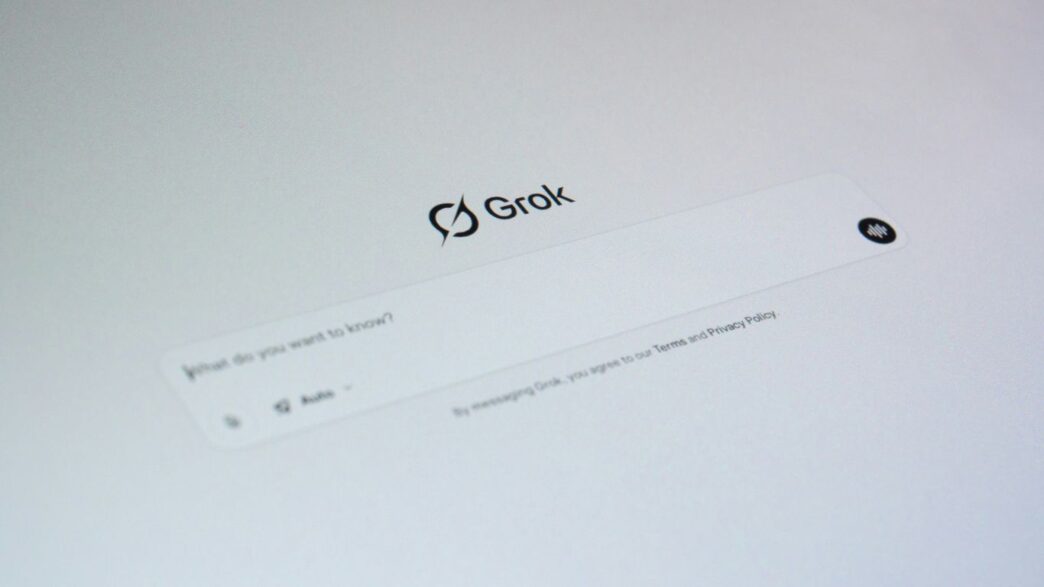Understanding ChatGPT Search Capabilities
So, what exactly is this ChatGPT Search thing everyone’s talking about? It’s basically a new way to find information, and it’s pretty different from just typing into a search bar and getting a list of links. Think of it less like a library catalog and more like asking a really smart person who can instantly look things up for you. It combines the chat abilities of AI with the ability to search the internet in real-time. This means you can ask a question, and instead of just getting a bunch of website addresses, you get a direct answer, pulled together from various sources. It’s designed to be quick and to the point, cutting out a lot of the usual clicking around.
What Is ChatGPT Search?
At its core, ChatGPT Search is an AI-powered tool that aims to give you answers directly. It’s not just about finding web pages; it’s about understanding what you’re asking and then finding the most relevant information to answer that specific question. It pulls data from the web, processes it, and then presents it to you in a way that makes sense, often in a conversational format. This makes getting information feel more natural and less like a chore. It’s a big step up from just getting a list of links you have to sort through yourself.
How ChatGPT Search Works
This new search method works by blending a couple of key things. First, when you ask something, it goes out and gathers information from a wide range of places on the internet. It doesn’t just grab one piece of data; it looks at multiple sources to get a good picture. Then, it uses its AI brain to put that information together into a coherent answer. What’s really neat is that it remembers what you’ve talked about. If you ask a follow-up question, it understands the context from your previous questions and gives you an answer that fits right in. This conversational aspect is a big part of what makes it feel so different and useful.
Key Features That Set ChatGPT Search Apart
There are a few things that really make ChatGPT Search stand out from what we’re used to:
- Direct Answers: Instead of a list of links, you get a summarized answer right away. This saves a ton of time.
- Conversational Flow: You can ask follow-up questions, and the AI will keep up with the conversation, refining its answers as you go.
- Human-Like Interaction: It feels more like talking to a knowledgeable assistant than typing keywords into a box.
- Speed and Accuracy: It’s built to find and present information quickly and precisely.
- Privacy Focus: Unlike many free services, it’s designed with user privacy in mind, meaning less tracking of your activity.
The Unique Approach of ChatGPT Search
So, what makes ChatGPT Search feel so different from just typing into a regular search bar? It’s not just about getting an answer; it’s about how you get there. Think of it less like a library catalog and more like talking to someone who’s already read all the books and can just tell you what you need to know. It’s a pretty neat shift, honestly.
Direct Answers Without Links
Forget about scrolling through pages of blue links, trying to figure out which one might actually have the information you’re looking for. ChatGPT Search cuts out that middle step. Instead of just pointing you to a website, it actually pulls the relevant bits together and gives you a direct answer. It’s like asking a friend for a recipe and they just tell you the ingredients and steps, rather than handing you a cookbook and saying ‘figure it out’. This saves a ton of time, especially when you’re in a hurry or just need a quick fact.
Conversational Follow-Ups
This is where it really starts to feel like a conversation. You ask a question, get an answer, and then you can ask a follow-up question that builds on the first one. The AI remembers what you were talking about, so you don’t have to repeat yourself or start a whole new search. It’s pretty handy for digging deeper into a topic without getting lost. You can keep asking ‘why?’ or ‘what about this?’ and it just keeps up.
Human-Like Interaction
Honestly, it just feels more natural. You can ask questions in a normal, everyday way, not just with a bunch of keywords. It seems to get what you mean, even if you don’t phrase it perfectly. It’s like chatting with someone who’s really good at explaining things. This makes the whole process of finding information feel less like a chore and more like a helpful chat. It’s a big change from the sometimes robotic feel of traditional search results.
ChatGPT Search Applications Across Sectors

ChatGPT Search isn’t just a fancy new way to find things online; it’s actually changing how people learn, work, and grow in all sorts of fields. Think about it – instead of sifting through pages of links, you get direct answers. This makes it super useful for pretty much anyone, no matter what they do.
Educational Insights
For students and teachers, this tool is a game-changer. Imagine trying to research a complex topic for a school project. Instead of spending hours clicking through different websites, hoping to find the right information, you can ask ChatGPT Search directly. It can pull together information from various sources, explain concepts in simpler terms, and even help brainstorm ideas. It’s like having a super-smart research assistant available 24/7. This means less time spent searching and more time spent actually understanding the material. It can help with everything from understanding historical events to grasping scientific principles.
Business Intelligence
In the business world, staying ahead means having the right information at the right time. ChatGPT Search can help professionals keep up with market trends, see what competitors are doing, and get quick updates on industry news. Whether you’re in finance, healthcare, or tech, getting a clear picture of the landscape is important. This tool can quickly summarize reports, analyze data, and provide insights that might otherwise take a lot of digging to find. It helps make faster, more informed decisions. For example, a marketing team could use it to understand customer sentiment or identify emerging market needs without waiting for lengthy reports.
Personal Development
Beyond school and work, ChatGPT Search is also a great companion for personal growth. Always wanted to learn a new language? Need to pick up a new skill for a hobby? This tool can guide you. You can ask for step-by-step instructions, explanations of difficult concepts, or even practice conversations. It supports learning in a way that feels natural and conversational. It’s not just about acquiring new knowledge; it’s about making that knowledge accessible and actionable for your own life. Whether it’s learning to cook a new dish or understanding personal finance, the possibilities are pretty wide open.
ChatGPT Search vs. Traditional Search Engines
So, how does this new AI search thing stack up against the search engines we’ve all been using forever? It’s actually pretty different, and honestly, kind of a big deal.
Query Understanding Differences
Traditional search engines, you know, the ones you’ve probably used since dial-up was a thing, are mostly about keywords. You type in what you’re looking for, and they try to match those exact words or close variations to web pages. It’s like looking for a specific book in a library by its title or author. If your keywords aren’t quite right, you might get a bunch of stuff that’s not really what you wanted. ChatGPT Search, on the other hand, gets what you mean, not just what you say. It’s more like asking a librarian who understands your general topic and can point you to the right section, even if you don’t know the exact book title. It can figure out the intent behind your question, even if you phrase it in a more natural, conversational way. This means you can ask things like, ‘What were the main economic impacts of that big tech merger last year?’ instead of trying to guess the perfect search terms.
Response Format Variations
This is where you really see the change. When you use a traditional search engine, you get a list. A list of links, usually with little snippets of text. You then have to click on those links, go to different websites, and piece together the information yourself. It’s a lot of clicking around. ChatGPT Search skips that whole step. It aims to give you a direct answer, right there. It pulls information from various sources and synthesizes it into a coherent response. Think of it as getting a summary report instead of a stack of research papers you have to read yourself. It’s designed to be more like a conversation where you get the information you need without having to do all the legwork.
Content Citation Methods
Okay, so with traditional search engines, it’s pretty straightforward: the link is the citation. You see a result, you click it, and you know where the information came from. ChatGPT Search is a bit more nuanced. While it aims to provide direct answers, it’s also working on how to properly credit its sources. The idea is that it will eventually cite the web pages it used to formulate its answer. This is important because, let’s be real, knowing where information comes from builds trust. Right now, it’s still evolving, but the goal is to give you the answer and tell you where it found that information, so you can check it out yourself if you want to. It’s a blend of getting a quick answer and still having the option to verify the source, which is pretty neat.
The Technical Workflow of AI Search

So, how does ChatGPT Search actually pull off those quick, direct answers? It’s not magic, though it might feel like it sometimes. It’s a pretty neat, step-by-step process that uses smart AI to sift through a ton of information.
API Integration for Search Results
When you type something into ChatGPT Search, it doesn’t just start guessing. First, it reaches out to a search engine’s API, like Bing’s. Think of the API as a messenger that brings back a structured list of potential answers. This list comes with details for each result, such as:
- URL: The web address of the page.
- Title: What the page is about.
- Snippet: A short summary.
- Ranking Position: How relevant Bing thinks it is.
- Date Published: When the content was put online.
This initial data dump gives ChatGPT a solid starting point for figuring out what information might be useful.
AI Evaluation of Search Result Metadata
Next, the AI gets to work analyzing that list of results and their details. It’s like a super-fast quality check. The AI looks at things like:
- Title Match: Does the page title seem to answer your question directly?
- Snippet Relevance: Does the summary suggest the page has the information you’re looking for?
- Content Freshness: Is the information up-to-date, especially if you’re asking about something current?
- Source Authority: Is the website generally considered a reliable place for this kind of information?
This metadata evaluation is key to quickly filtering out pages that probably won’t help you. It helps the AI focus on the results that are most likely to be good fits.
Intelligent Selection of URLs to Crawl
Finally, ChatGPT’s own smart systems decide which of those promising URLs are worth a closer look. They consider a few things:
- Relevance: How well does the title and snippet line up with what you asked?
- Timeliness: Newer information is often better, particularly for topics that change quickly.
- Trustworthiness: Reputable websites get a nod.
- Initial Ranking: Results that Bing already ranked highly are usually considered.
By going through these stages, ChatGPT Search can pick out the best information and present it to you in a way that makes sense, rather than just giving you a long list of links to sort through yourself.
Advantages of ChatGPT Search for Users
So, what does all this mean for you, the person actually trying to find stuff online? Well, it’s pretty good news, honestly. ChatGPT Search is designed to make your life easier when you’re looking for information. It’s not just about finding answers; it’s about finding them quickly, securely, and without a lot of hassle.
Speed and Precision in Information Retrieval
Let’s face it, nobody likes wading through pages of search results. ChatGPT Search cuts through the noise. Instead of giving you a list of links you have to click through, it aims to give you a direct answer. Think about needing to know the capital of Peru. A regular search might give you a few links, but ChatGPT Search will likely just tell you, ‘Lima.’ This direct approach saves you a ton of time. It’s like having a super-fast research assistant who knows exactly what you’re asking for and gets straight to the point. This precision is a game-changer, especially when you’re on a deadline or just want to get on with your day.
Enhanced Security and Privacy Features
This is a big one for a lot of people. In today’s world, we’re all a bit more aware of how our data is used. ChatGPT Search is built with privacy in mind. Unlike some free services that might track your every move to show you ads or build a profile, ChatGPT Search aims to be more respectful of your personal information. It’s designed to handle your queries without collecting excessive data about you. This means you can search for sensitive topics or just browse without feeling like you’re constantly being watched. It’s a more comfortable way to find information, knowing your privacy is taken seriously.
Global Accessibility and Multi-Language Support
Information shouldn’t be limited by language. ChatGPT Search is built to be accessible to people all over the world. It can understand and respond in multiple languages. So, whether you’re in Tokyo, Berlin, or Buenos Aires, you can ask your questions in your native tongue and get answers that make sense. This breaks down barriers and makes knowledge available to a much wider audience. It’s a tool that can help anyone, anywhere, learn and discover without language getting in the way.
The Road Ahead
So, that’s pretty much the rundown on ChatGPT Search. It’s not just another search tool; it feels like a real step forward in how we find things online. Instead of sifting through endless links, you get answers right there, and it actually remembers what you were talking about from one question to the next. It’s faster, it’s smarter, and honestly, it makes looking stuff up feel a lot less like work. As this tech keeps getting better, it’s going to change how we learn, how we work, and how we just generally figure things out. It’s a pretty exciting time to see what comes next.












